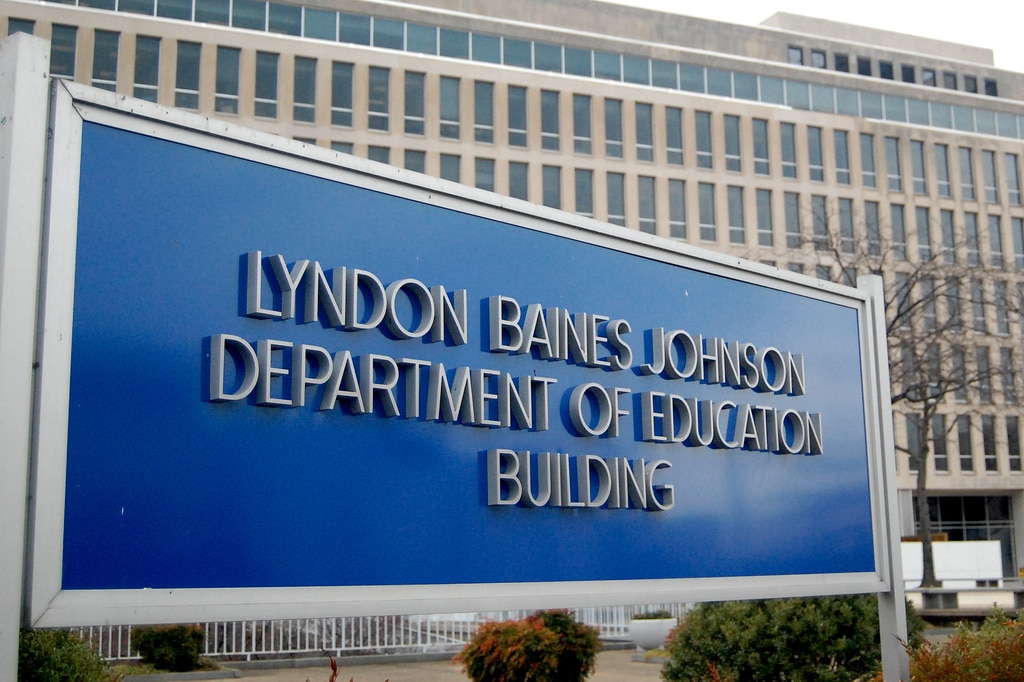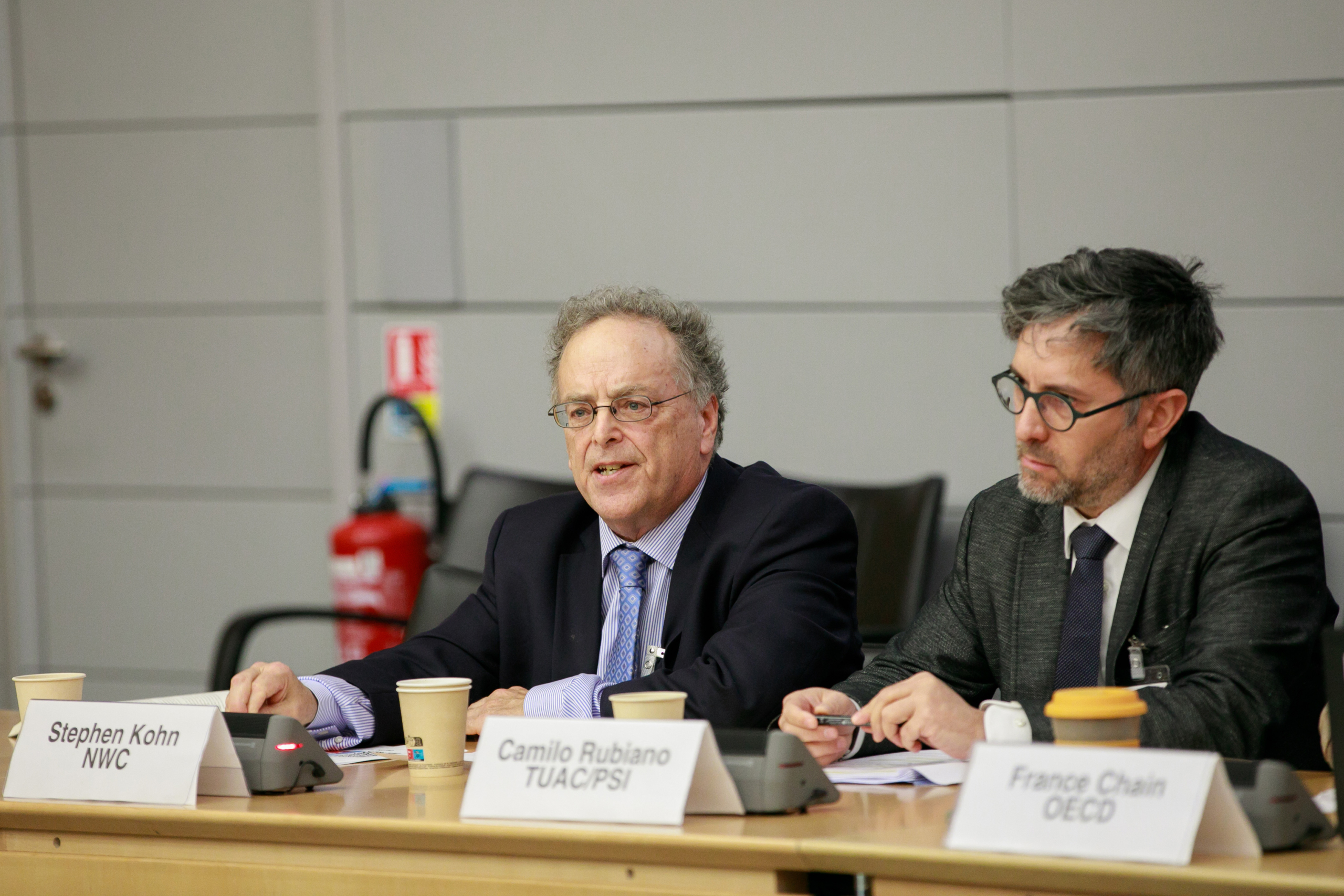DeVos Pick Puts at Risk Veterans and Whistleblowers at For-Profit Colleges

Education Secretary Betsy DeVos has selected a former dean at DeVry University (a for-profit college) to lead the Department of Education’s Student-Aid Enforcement Unit, which was established to combat fraud in higher education. This appointee has no background in law or regulatory enforcement, which likely means more fraud and abuse in federal student loan programs as a result in lax enforcement. But this pick also signals there are real risks to veterans who attend, and whistleblowers who work at, for-profit colleges.
Having represented whistleblowers at several for-profit colleges I have seen clients suffer severe whistleblower retaliation after they reported fraud on federal programs. Many whistleblowers in the for-profit college industry are counsellors or management officials who reported fraud out of a desire to protect students and ensure that educational requirements are followed by these schools.
Widespread fraud in the for-profit college industry drains federal dollars from students attending traditional colleges, and adversely impacts military families and veterans who attend for-profit college programs on the GI Bill and Defense Department educational benefits.
On average, 86% of all funding at for-profit colleges are from federal taxpayer dollars. For-profit colleges enroll between 10 to 13% of college students, yet receive 25% of all federal financial aid dollars. Specifically, for-profit colleges received:
- 25% of all Department of Education student aid funds, totaling $32 billion Education department grants and loans in 2009-10;
- 37% of Post-9/11 GI Bill benefits, or $1.6 billion in benefits in the first two years of the program); and
- 50% of Department of Defense Tuition Assistance Funds.
However, the student loan default rate at for-profit colleges is more than twice that at private and public non-profit schools, respectively.
Veterans are particularly vulnerable to the pervasive fraud schemes that have been uncovered at for-profit colleges. According to Money Magazine, for-profit colleges have “targeted veterans for recruitment, leading to shady marketing and troubling outcomes for the nation’s service men and women.”
All of this comes at taxpayers’ expense without vigorous enforcement to prevent fraud and abuse by for-profit colleges.
Without whistleblowers, most of the fraud and abuse at for-profit colleges would never be reported. For more than a decade, allegations that for-profit colleges would pay recruiters bonuses, commissions and other incentives to enroll more students, regardless of whether the students were qualified or the for-profit school was capable of providing a quality education, were all too frequent. After several high-profile whistleblower cases, there was a change in policy and stricter regulations enacted during the Obama administration to prevent this kind of fraud at for-profit colleges. However, under Trump’s Education Department there has been real concern as to whether these anti-fraud regulations will be enforced. The Trump administration’s appointment of a former DeVry University official to lead the department’s anti-fraud Unit raises greater fears that the fox is now in charge of the hen house.
In the past decade, there have been a series of fraud cases filed against for-profit colleges, many of these arising under the False Claims Act brought by whistleblowers who worked at these schools. Several for-profit colleges and universities have been accused of ripping off taxpayers and students through fraud schemes designed to fill the schools’ coffers with federal student loan dollars while violating federal regulations. Many of these for-profit college fraud cases have resulted in high dollar settlements to resolve False Claims Act cases and other regulatory fines.
DeVry Education Group (which owns DeVry University) is one for-profit school that recently settled fraud charges in a $100 million settlement with the Federal Trade Commission and the Department of Education. But other for-profit colleges have entered into large settlements with the government to settle whistleblower allegations that these for-profit schools violated the False Claims Act.
For example, in November of 2015 the Department of Justice announced a $95.5 million settlement with Education Management Corporation (EDMC), the second-largest for-profit education company in the country, to resolve four separate qui tam False Claims Act cases brought by whistleblowers alleging fraud. According to the DOJ’s press release:
The United States and five states intervened and actively litigated one of those four whistleblower lawsuits… The United States’ complaint in intervention alleged systemic violations of Title IV of the HEA’s ICB [incentive compensation ban] and parallel state provisions, which prohibit schools from paying recruiters based on their success in securing enrollments. Specifically, the United States and the plaintiff states claimed that from 2003… EDMC falsely certified to the U.S. Department of Education and various state offices of higher education that it was complying with the ICB, in order to be eligible to receive the federal grant and loan dollars that compose the majority of EDMC’s revenue. In reality, according to the United States’ complaint in intervention, EDMC was running a high-pressure sales business and paid its recruiters based only on the number of students they enrolled. As a result of these allegedly false certifications, EDMC improperly enriched itself for more than 10 years with federal and state grant and loan dollars. More broadly, EDMC’s alleged conduct resulted in exactly the problems that Congress sought to curtail when it enacted the ICB: the enrollment of students in programs for which they lacked the necessary skills and qualifications, unsustainable student debt and default rates and schools’ pursuit of profits ahead of a legitimate educational mission.
In 2009, the Apollo Group, the parent company of the University of Phoenix, settled a similar False Claims Act qui tam whistleblower suit for $78.5 million in 2009.
Many of these for-profit colleges, like the University of Phoenix, DeVry University and Corinthian Colleges, are owned by publicly traded companies subjecting them to charges that wrongdoing disclosed by whistleblowers has resulted in fraud against investors and securities violations. In July of 2017, the Securities and Exchange Commission (SEC) brought an enforcement action against now defunct for-profit college ITT, but no monetary sanctions were ordered.
Some for-profit colleges have gone out of business leaving students in the lurch without a degree and high student loan debt and taxpayers on the hook for funding millions of dollars in fraud. According to the Washington Post, ITT has now closed and declared bankruptcy leaving 35,000 students and 8,000 employees in the lurch and the Education Department is seeking $232 million to recover federal student aid that was extended to ITT. Before all is done, federal taxpayers may be on the hook for over $400 million to bail out ITT students who were victimized. In another case, the United States obtained a final judgment in February of 2017 against FastTrain College and its owner and CEO Alejandro Amor for violating the False Claims Act by submitting fraudulent documents on behalf of students in order to secure millions in federal financial aid, and the court ordered more than $20 million in damages and civil penalties. This civil judgment followed parallel criminal proceedings that resulted in criminal convictions of the for-profit school’s officials for fraud.
Whistleblowers who place their careers at risk by reporting fraud and insisting upon compliance at for-profit colleges are at even greater risk because the message being sent by the Trump administration is that combatting fraud in this industry is not a priority and less regulation and less enforcement by the government will be the new normal. The message to whistleblowers from the top of the enforcement chain at the Department of Education is don’t bother blowing the whistle. Appointing an official who worked at a for-profit college with no enforcement experience is bad enough, but the Trump administration has done nothing to signal that it will protect students, veterans and whistleblowers in an industry that has been described as a “$35 billion cesspool of fraud.”
The public should demand that whistleblowers and veterans at for-profit colleges be protected. This can only be done if Secretary DeVos appoints officials who are committed to enforcing the laws combatting fraud in for-profit colleges and if the Department of Education and Justice Department get serious about fighting fraud in False Claims Act whistleblower cases against for-profit colleges.
Related links:
- How For-Profit Colleges Target Military Veterans (and Your Tax Dollars)
- For-Profit College Company to Pay $95.5 Million to Settle Claims of Illegal Recruiting, Consumer Fraud and Other Violations
- $78.5M Settles U. of Phoenix Case
- SEC Settles Fraud Charges Against Defunct For-Profit College Company ITT
- For-Profit College FCA Suit Ends in $20M-Plus Judgment
- For-profit education is a $35 billion cesspool of fraud—and the US government has let it fester





